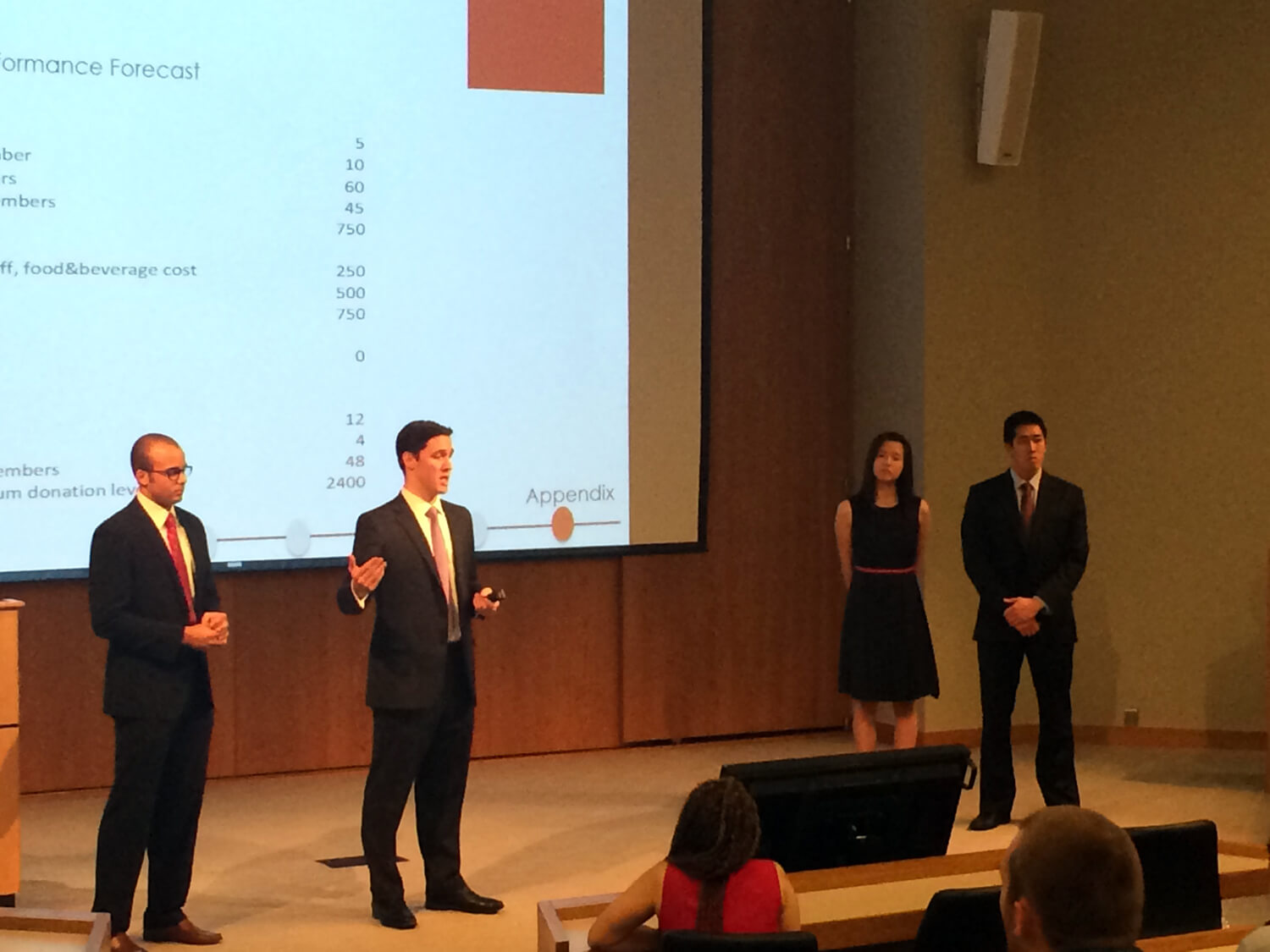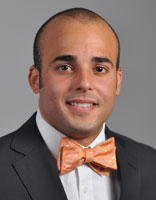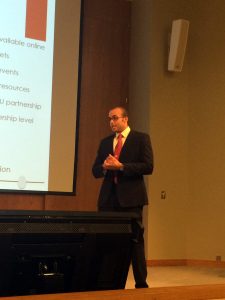Duke MMS Student Blog

Consulting Experience: The Accenture Case Competition, Part 1

How far would you go to experience new things? For some of my classmates, it would be about jumping out of a plane for skydiving. For others, it might be about traveling around Asia and Europe. For Angel David Medina, it’s about participating in the Accenture Case Competition to gain consulting experience.
David is one of my classmates and is from the Dominican Republic. He joined the army before attending MMS and graduated with an International Business degree. It is a degree that matches his passion for learning about the movement of capital goods and the interaction of different countries. As a student, David loves to travel, learn other languages, and to solve problems with critical thinking. He is currently serving as an MMS Admissions Ambassador and is looking for opportunities in strategic planning to pursue after graduation.
I interviewed him to find out a little more about how the case competition fits into his big picture.

Why did you join the Accenture case?
First of all, I’m interested to gain knowledge about consulting. Before I came to the United States, I had limited access to understand what consulting is really about. The Accenture Case Competition gives me the know-how and experience that I needed.
I also know that there are participants who had previous consulting backgrounds. They might focus more on the prize value: a first-round interview with Accenture and a dinner with the senior executives residing in North Carolina.
Since the Accenture case was a team competition, how did your team get started?
So at first, Lily (Shuangli Li) teamed up with me for the Accenture case. Then we gathered more members. I knew Derek Philips since the first day of class, so we invited him. Then, we also invited Jacob Hwang.
So how did your team work together? How dynamic you think your team was?
There’s diversity in our team. Derek is good with communications and presentations, coming from the investment banking area. Meanwhile, Jacob is more analytical with a statistics background from Duke. Lily had an internship in Hong Kong. Meanwhile, I studied international business and I worked in a bank before. Overall, we had a pretty balanced group.
Can you walk me through the case?
Accenture’s client has some issues in managing their space rental agreements, membership renewals, and overall revenue growth. Each team received the client’s financial books and related information. My team decided that first, we needed to analyze this data. Then we compiled all analysis into five simple power point slides. Yes, only five. In these five slides we defined the problems and recommendations to solve them.

How were the work dynamics in your team, considering the tightly scheduled deadlines?
It’s interesting, actually, how we did it. Compared to other teams, we spent fewer hours at Fuqua. Yes, most of the teams stayed late at Fuqua. But my team believed in working efficiently. We usually went home around 10 or 11 p.m. and the latest was 2 a.m. To avoid tensions, we would take a break when we were tired. My team would walk around, play ping pong, or buy food from a nearby Mediterranean place. When we were done, we walked back to the room and would get more creative ideas.
In terms of schedule, it was actually very challenging. We only had three days to prepare the five slides submitted to Accenture. A day after submission, which was Tuesday, we received an email. I was honored to learn that my team succeeded and made it to the finals. But that meant we had to go further in-depth with our results. We had to actually present in front of the audience and the Accenture judges.
Did you have a structure in your team? Who was responsible for what during the competition?
No, we didn’t exactly have it. We did not split the work because we believe in team effort. I would throw out some ideas to solve the case and others would add their own too. This way, we could actually do the work together.

How did Accenture case change your views on consulting?
Personally, I learned a lot. I learned about the three essential things: how to gather information; analyze it and relate key points to our objectives; and how to present the summary to the audience and judges. Even more than that, the Accenture case helped me realize what consulting is about, how it feels to work for long hours, and how to apply critical thinking on a problem.
I myself like the idea of working in teams to help solve others’ problems. In the future, I might look into strategic consulting that matches my passion.
That sounds great. Do you have final tips for students who might join the case competition in future years?
Yes! I believe this competition is a great opportunity for MMS students to join. For tips, I’d advise these 3 things:
- Be prepared to use some analytical skills and critical thinking. You’re going to condense different pieces of information from spreadsheets, interview records, and financial books. You have to be able to condense them all together into one sentence.
- Be open-minded in a brainstorming session. Listen to others when they analyze your idea; when they add to or even reject it. It is important to realize this: no matter how smart you are, working in a team is always better. Because most of the time, four to five brains can think a lot better than one brain.
- Just be prepared to sit in front of your computer for long hours! Walk around if you must!
In part two of this blog, I interviewed a classmate from a different team in the case competition.



